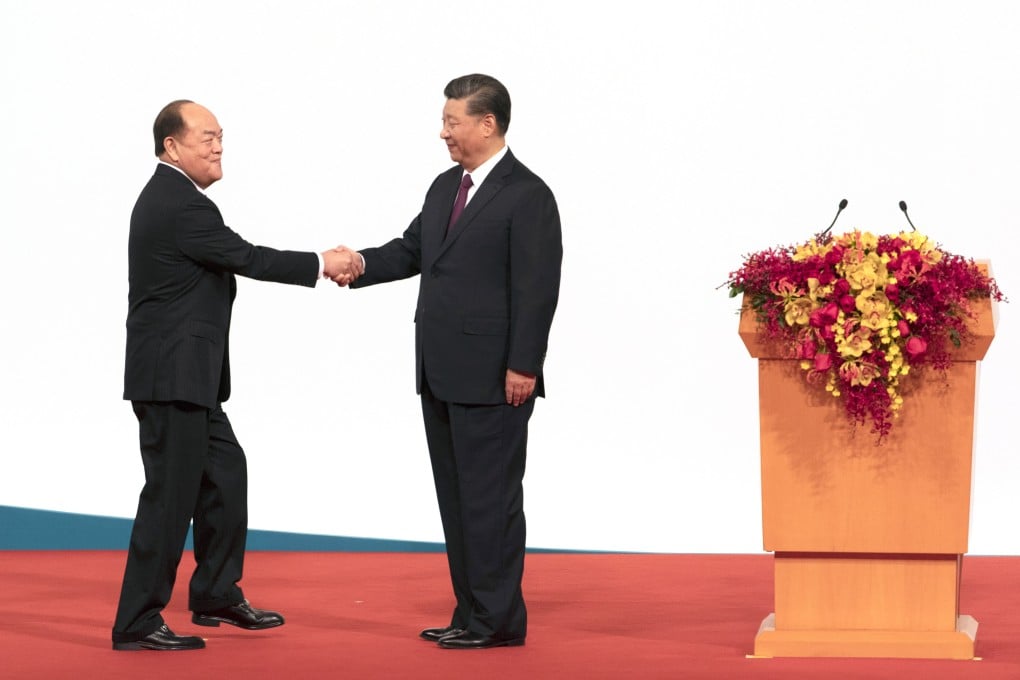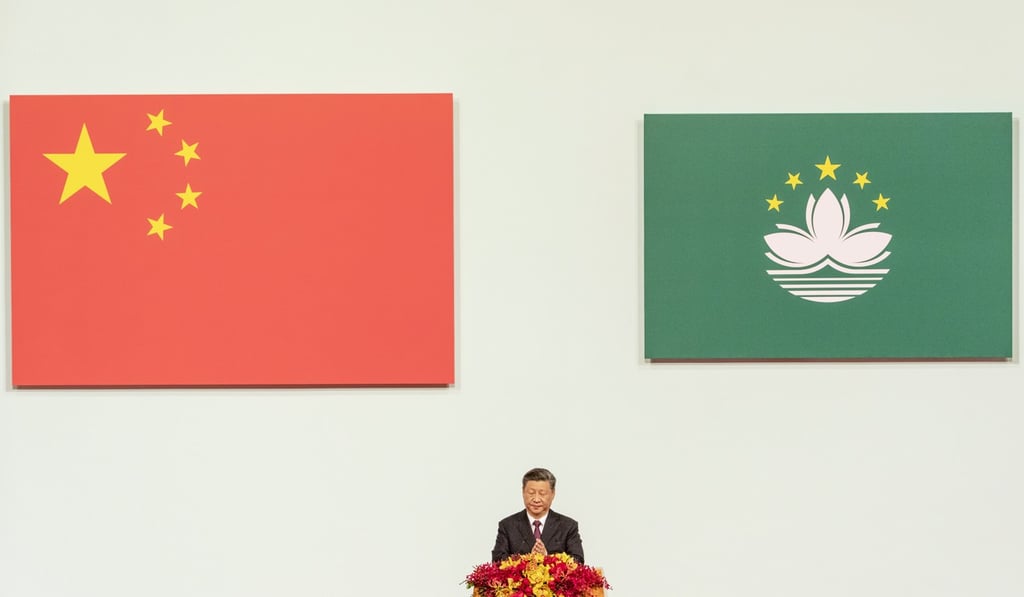Chinese President Xi Jinping holds up ‘one country, two systems’ as only way forward for Hong Kong and Macau
- President says the system under which both cities are ruled can work in the long run, ‘as long as we are committed to it and act on it’
- Xi also warns against foreign interference in either of the former European colonies

China’s President Xi Jinping on Friday spelled out his vision of a successful “one country, two systems” policy for Hong Kong and Macau, effectively telling the two cities that Beijing’s governing principle was the only way forward for a bright future and warning against foreign interference in their affairs.
Ending his three-day visit to Macau to mark the 20th anniversary of its return from Portuguese to Chinese rule, Xi swore in the casino hub’s new chief executive Ho Iat-seng and his cabinet in the morning.
In a subsequent 30-minute speech, he summarised the successful implementation of the one country, two systems principle in Macau in four points, and listed four other hopes for the Macau government. His remarks were widely interpreted as an indirect but obvious “to-do” list for Hong Kong, which has been rocked by six months of often-violent anti-government protests.
Among his audience at the ceremony were Hong Kong Chief Executive Carrie Lam Cheng Yuet-ngor and her senior officials, who are still struggling to come up with a solution to end the political crisis and social unrest first triggered by the now-withdrawn extradition bill.

Under Beijing’s governing principle, which applies to both special administrative regions, Hong Kong and Macau are promised a high degree of autonomy, though Beijing officials and pro-democracy activists in the former British colony are often at odds over what that means. Hong Kong’s future has been the subject of intense debate, given the anti-Beijing nature of the protests, while Macau has been held up as a shining example of making the governing formula work.